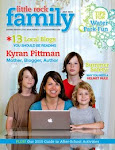 La's Orchestra Saves the World: A Novel by Alexander McCall Smith
La's Orchestra Saves the World: A Novel by Alexander McCall SmithMy rating: 4 of 5 stars
The cover of La’s Orchestra Saves the World absolutely enchanted me – the blue/green patina background, antique bicycle, and chicken cage – I was ready to jump on the bicycle seat and peddle off into the world of Alexander McCall Smith.
When I did, I ended up in the English countryside, with La Stone, her cottage and garden. La was probably similar to most countryside residents during WWII -- trying her best to help the war effort however best she could, whether it was planting a victory garden, helping her neighbors, or in her case, organizing an orchestra, a social activity that helped distract folks from the ongoing carnage of war and gave them some semblance of normalcy.
La’s (short for Lavender) “road” to country peasant started with the death of her philandering husband, and the sympathy of her now former in-laws, as they bequeathed their country home to her. She meets neighbors and local military men that sustain her during the war effort. One of these is Feliks, a polish refugee who has been assigned to work a neighboring farm. La develops a deep interest in Feliks as he helps a disabled farmer and volunteers to help her with her own garden.
This was a calm, bucolic, novel, in spite of the WWII setting. It was beautifully written, although, at times I thought it was an overly plain book –plain characters that on their own seemed insignificant and ordinary, but when “planted” together they were much like the potatoes they were cultivating – plain in appearance, but nutritionally necessary to the inhabitants and ultimately, to the reader.
As much as this was a novel of survival – it was also a morality tale. Many neighbors were suspicious of Feliks and his polish ancestry – was he indeed a Pole? Or was he a German spy? La finds herself in the middle of unfounded accusations, and the fallout from those actions, suspicions and assumptions prove complicated.
I thought her organizing an orchestra was the stabilizing force for so many during the war– and La was reminded of this when she wanted to “quit and go home.” People needed the memories the music evoked – those of peaceful times when you could enjoy a concert without threat of destruction.
The ending, however, took a rather awkward “turn” with nuclear disarmament, and La becoming an anti-war protester. I thought that was odd, but it did set up the final meeting of Feliks and La and a satisfying conclusion.
In the end, this was a beautiful story of survival, friendship, and hope. A perfect reminder of what we can do when we depend on and help each other.
From the author himself, an interesting quote on why he wrote the novel:
I wrote La’s Orchestra Saves the World because I wanted to pay tribute to rather brave people. I wanted to say something about how ordinary people managed to get by during the Second World War. Most of them would not have regarded themselves as heroes and heroines, but they were. La (short for Lavender) was one of these. She worked on the land, helping a farmer with his chickens, and also started a little orchestra for British and American airmen. Music, she felt, helps. And it does--it inspires and heals.
The other group I wanted to pay tribute to was the Poles. Polish servicemen played a major role in the war. Their airmen, for example, participated in the Battle of Britain, that crucial battle that decided the fate of Europe. At the end of the war the Poles were betrayed and the contribution of their forces largely ignored. In the victory parade in London, the Poles were not allowed to march with everybody else (Stalin insisted on this). So those brave men stood at the side of the road and wept. This book is about them too.--Alexander McCall Smith
Book source: Public library
View all my reviews >>




























2 comments:
I agree with you - the cover of the book is delightful! Sounds like an interesting book. I may have to check it out. Thanks for the great review!
I agree, the ending with the anti-war was a bit surprising but I like how it tied in with La's feelings about war and the necessity of combating evil.
Did it take you a minute to remember the first chapter and make the connection to the boys? It did me!
Post a Comment